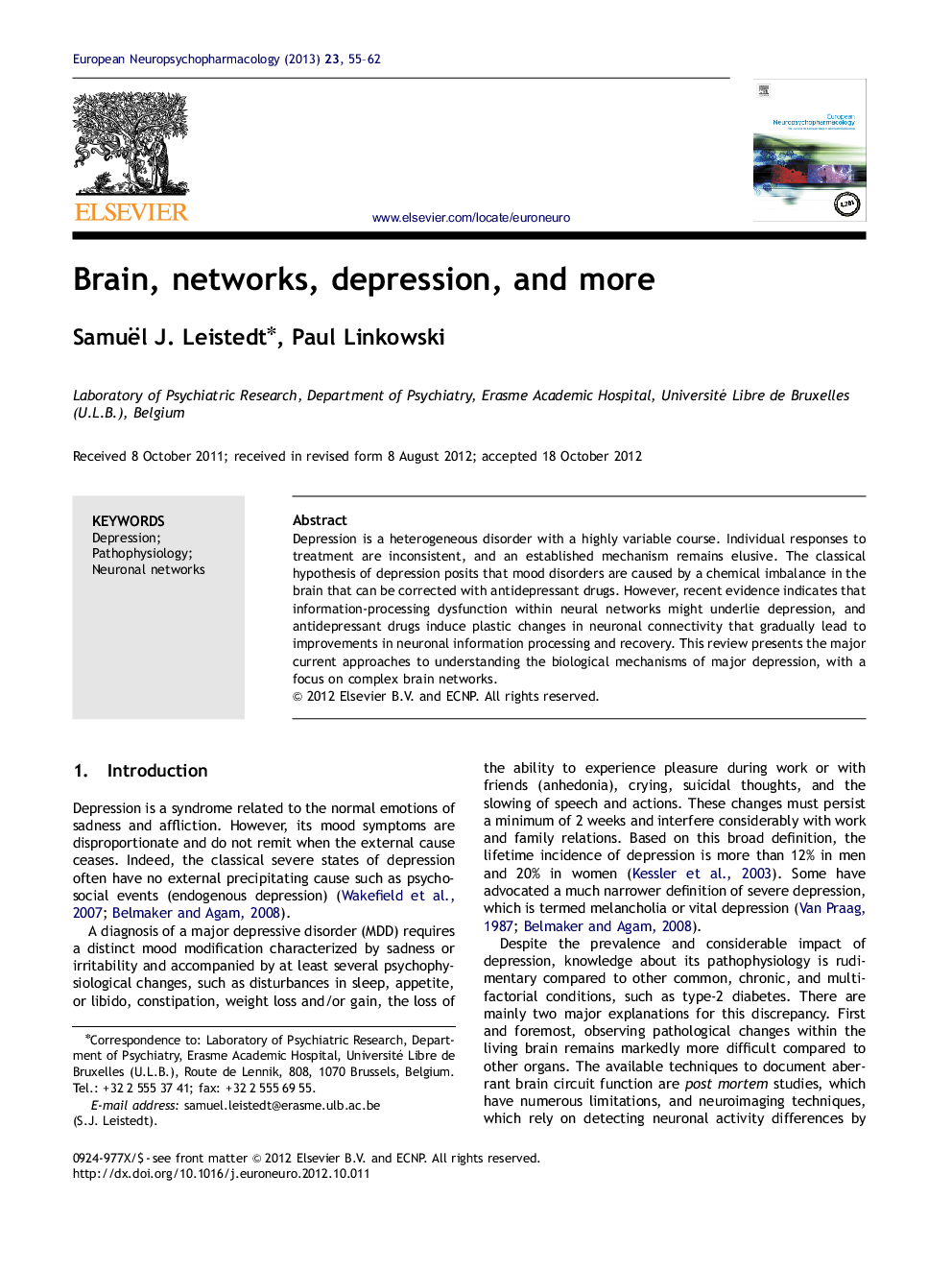| Article ID | Journal | Published Year | Pages | File Type |
|---|---|---|---|---|
| 10299281 | European Neuropsychopharmacology | 2013 | 8 Pages |
Abstract
Depression is a heterogeneous disorder with a highly variable course. Individual responses to treatment are inconsistent, and an established mechanism remains elusive. The classical hypothesis of depression posits that mood disorders are caused by a chemical imbalance in the brain that can be corrected with antidepressant drugs. However, recent evidence indicates that information-processing dysfunction within neural networks might underlie depression, and antidepressant drugs induce plastic changes in neuronal connectivity that gradually lead to improvements in neuronal information processing and recovery. This review presents the major current approaches to understanding the biological mechanisms of major depression, with a focus on complex brain networks.
Related Topics
Life Sciences
Neuroscience
Biological Psychiatry
Authors
Samuël J. Leistedt, Paul Linkowski,
